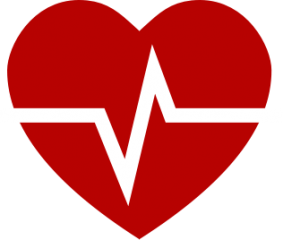Cardiovascular disease is the number one killer in the United States for both men and women. According to the Centers for Disease Control and Prevention, about 735,000 people have a heart attack in the United States every year. Because of the significant amount of people who have heart attacks each year, it is important that we are able to recognize the symptoms of heart attacks in both men and women. By becoming more aware of these differences, we can potentially save the lives of more people who are at risk of suffering a heart attack.
Who Is More Likely to Suffer a Heart Attack: Men or Women?
It may surprise many that more women than men die every year from a heart attack and are also more likely to suffer a second heart attack within five years of the first. This could be for many reasons. One reason is that women tend to not recognize typical and atypical symptoms of heart attacks. Another reason is that doctors may attribute chest pains in women to causes other than cardiac problems. On the other hand, men are statistically more likely to suffer from heart attacks earlier in life than women. Another discrepancy in heart attacks in men and women results from women’s hearts not being researched in clinical studies until recently. Results of these studies are still being analyzed in order to shed more light on women’s heart health and will hopefully provide more answers.
Symptoms of a Heart Attack
The symptoms of a heart attack in the two genders needs to be recognized so that anyone experiencing these symptoms can identify them and seek medical attention. While there is some overlap in heart attack symptoms in men and women, there are also some key differences that should be noted.
Symptoms in men: Common symptoms of heart attack in men include weakness, unusual fatigue, shortness of breath, breaking out in cold sweats, and dizziness.
Symptoms in women: Women may experience heart attack symptoms such as shortness of breath, a disturbance of sleep, unusual fatigue, a feeling of indigestion, and anxiety.
Both men and women may experience the basic signs of a heart attack, such as chest discomfort and pain or pressure in the chest, neck, arms, or back. Other symptoms that both sexes may experience include sweating and a feeling of heartburn that may come with nausea. Men are more likely to experience these typical symptoms than women. Many women neglect to seek medical attention because they believe they have the flu or something that is not serious. For this reason, it is important for women to pay especially close attention to their symptoms.
How to Prevent Heart Attacks
No one wants to be at risk for heart attacks or other cardiovascular problems. This is why it is crucial that we all take steps to prevent them from occurring by lowering our risk and being prepared. Here are some ways that we can reduce our risk of heart attacks:
Exercise regularly: Walking only 30 minutes a day can lower your risk of a heart attack. Develop a regular exercise schedule and stick to it in order to keep your heart healthy. Exercise can provide a handful of other benefits as well, including an elevated mood and a leaner waistline.
Maintain a healthy diet: A diet that is heart healthy will ultimately lower your risk of a heart attack. Avoid processed foods, lower your intake of salt, and eat foods that are rich in nutrients, fiber, and healthy fats.
Quit smoking: After one year of quitting smoking, you can cut your risk of coronary heart disease in half. Smoking has been shown to increase the risk of heart attacks in both men and women, and it is critical that you stop in order to reduce your chances.
Schedule regular visits to the doctor: Learning your personal risk of cardiovascular problems by consulting with a doctor can help you take better care of yourself.
Be Prepared
Both men and women should be prepared in the case of an emergency. Taking an online CPR course from SimpleCPR is easy and can allow you to give your loved ones proper medical attention until a medic team arrives. Standing by and watching helplessly as a loved one suffers is something no one wants to experience. By taking precautions and seeking out training, you will be able to feel more comfortable in the case of an emergency.




